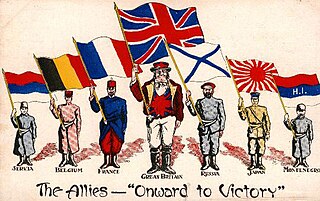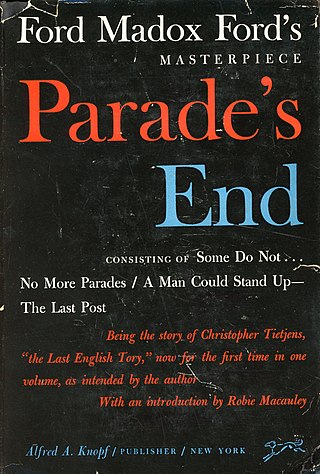Related Research Articles

Hegemony is the political, economic, and military predominance of one state over other states, either regional or global.

The Upanishads are late Vedic and post-Vedic Sanskrit texts that "document the transition from the archaic ritualism of the Veda into new religious ideas and institutions" and the emergence of the central religious concepts of Hinduism. They are the most recent addition to the Vedas, the oldest scriptures of Hinduism, and deal with meditation, philosophy, consciousness, and ontological knowledge. Earlier parts of the Vedas dealt with mantras, benedictions, rituals, ceremonies, and sacrifices.

International relations (IR), are the interactions among sovereign states. The scientific study of those interactions is also referred to as international studies, international politics, or international affairs. In a broader sense, the study of IR, in addition to multilateral relations, concerns all activities among states—such as war, diplomacy, trade, and foreign policy—as well as relations with and among other international actors, such as intergovernmental organizations (IGOs), international nongovernmental organizations (INGOs), international legal bodies, and multinational corporations (MNCs).

Religious studies, also known as the study of religion, is the scientific study of religion. There is no consensus on what qualifies as religion and its definition is highly contested. It describes, compares, interprets, and explains religion, emphasizing empirical, historically based, and cross-cultural perspectives.

Nation-building is constructing or structuring a national identity using the power of the state. Nation-building aims at the unification of the people within the state so that it remains politically stable and viable in the long run. According to Harris Mylonas, "Legitimate authority in modern national states is connected to popular rule, to majorities. Nation-building is the process through which these majorities are constructed." In Harris Mylonas's framework, "state elites employ three nation-building policies: accommodation, assimilation, and exclusion."

Parade's End is a tetralogy of novels by the British novelist and poet Ford Madox Ford, first published from 1924 to 1928. The novels chronicle the life of a member of the English gentry before, during and after World War I. The setting is mainly England and the Western Front of the First World War, in which Ford had served as an officer in the Welch Regiment, a life he vividly depicts. The individual novels are Some Do Not ... (1924), No More Parades (1925), A Man Could Stand Up — (1926) and Last Post (1928).
Ed Parish Sanders was a liberal and secularized New Testament scholar and a principal proponent of the "New Perspective on Paul". He was a major scholar in the scholarship on the historical Jesus and contributed to the view that Jesus was part of a renewal movement within Judaism. Sanders identified himself as a "liberal, modern, secularized Protestant" in his book Jesus and Judaism; fellow scholar John P. Meier called him a postliberal Protestant. He was Arts and Sciences Professor of Religion at Duke University, North Carolina from 1990 until his retirement in 2005.
The following is a timeline of major events in post-classical history from the 5th to 15th centuries, loosely corresponding to the Old World Middle Ages, intermediate between Late antiquity and the early modern period.
Owen Michael Roe is an Australian historian and academic, focusing on Australian history.
Archibald Haworth Brown, is a British political scientist. In 2005, he became an emeritus professor of politics at the University of Oxford and an emeritus fellow of St Antony's College, Oxford, where he served as a professor of politics and director of St Antony's Russian and East European Centre. He has written widely on Soviet and Russian politics, on communist politics more generally, on the Cold War, and on political leadership.

The military history of Russia has antecedents involving Kievan Rus' and the Rus' principalities that succeeded it, the Mongol invasion of the early 13th century, Russia's numerous wars against Grand Duchy of Lithuania, Crown of the Kingdom of Poland, Sweden, and Ottoman Empire, Prussia, France. The 20th century saw Russia's involvement in two world wars, as well as smaller military conflicts. During the Cold War, the greatly enlarged armed forces suppressed rebellions in Eastern Europe and became a nuclear superpower hostile to NATO, as well as China after 1960. The post-Cold War military history of the Russian Federation began in 1991.
John Hanbury Angus Sparrow OBE was an English academic, barrister, book-collector, and Warden of All Souls College, Oxford, from 1952 to 1977.
The Copenhagen School of security studies is a school of academic thought with its origins in international relations theorist Barry Buzan's book People, States and Fear: The National Security Problem in International Relations, first published in 1983. The School places particular emphasis on the non-military aspects of security, representing a shift away from traditional security studies. Theorists associated with the school include Buzan, Ole Wæver, and Jaap de Wilde. Many of the school's members worked at the Copenhagen Peace Research Institute, from which its name originates.

Richard Francis Gombrich is a British Indologist and scholar of Sanskrit, Pāli, and Buddhist studies. He was the Boden Professor of Sanskrit at the University of Oxford from 1976 to 2004. He is currently Founder-President of the Oxford Centre for Buddhist Studies. He is a past president of the Pali Text Society (1994–2002) and general editor emeritus of the Clay Sanskrit Library.
Doug Stokes is a British academic who is Professor in International Security and Strategy in the Department of Politics at the University of Exeter. He was born in 1972 in Hackney, East London. His father was a gardener and sign writer and his mother was a cleaner and secretary. He was educated in London inner city state schools and left home at 17, and Hackney when 25.

In the Western classical music tradition, Lied is a term for setting poetry to classical music to create a piece of polyphonic music. The term is used for any kind of song in contemporary German and Dutch, but among English and French speakers, lied is often used interchangeably with "art song" to encompass works that the tradition has inspired in other languages as well. The poems that have been made into lieder often center on pastoral themes or themes of romantic love.

Melvyn Paul Leffler is an American historian and educator, currently Edward Stettinius Professor of History at the University of Virginia. He is the winner of numerous awards, including the Bancroft Prize for his book A Preponderance of Power: National Security, the Truman Administration and the Cold War, and the American Historical Association’s George Louis Beer Prize for his book For the Soul of Mankind: The United States, the Soviet Union, and the Cold War.

A literary fragment is a piece of text that may be part of a larger work, or that employs a 'fragmentary' form characterised by physical features such as short paragraphs or sentences separated by white space, and thematic features such as discontinuity, ambivalence, ambiguity, or lack of a traditional narrative structure.
Security: A New Framework for Analysis is a book by Barry Buzan, Ole Wæver and Jaap de Wilde. It is considered to be the leading text outlining the views of the Copenhagen School of security studies. The work addresses two important conceptual developments: Buzan's notion of sectoral analysis and Ole Wæver's concept of 'securitization'. The book advocates for an intersubjective conceptualization of security, positing that the understanding of security should be broadened beyond its traditional scope. It contends that security should encompass a wider array of issues, such as environmental threats and challenges to societal identities.
George Owen Cambridge (1756–1841) was an English churchman, Archdeacon of Middlesex from 1808.
References
- ↑ Roe, Paul 'Societal Security' in A. Collins (ed.) 'Contemporary Security Studies', Oxford: Oxford University Press, p 179
- ↑ Roe, Paul 'Societal Security' in A. Collins (ed.) 'Contemporary Security Studies', Oxford: Oxford University Press, p 179
- ↑ Stuart Croft, Terry Terriff (2000), Critical reflections on security and change, Oregon: Frank Cass Publishers, p. 81